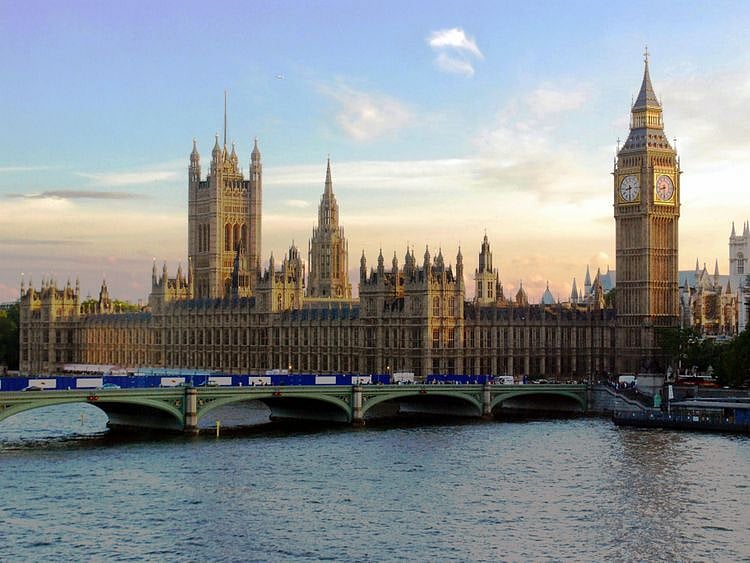Close race to 10 Downing Street
As Brexit looms, contenders for premiership should campaign like never before

Twenty-two years ago, after the landslide victory of Tony Blair in the 1997 general election, Ken Clarke and I emerged as the final candidates to be Conservative leader. It was the last time that party activists had no role in the process for electing a leader.
Although it is not very long ago, it seems now that the standards of the campaign and atmosphere within political parties belonged to a different age. Ken and I never said a word against each other in public, and probably not in private. Much of the process was behind closed doors, although I made the first effort in such a contest to go out among the grass roots and win support from the party members.
Now, thanks to the rule changes that followed, a leadership campaign is very different. The party members possess the decisive vote between the finalists. Social media means it is possible to communicate with them round the clock. There are even more media channels, as well as the plethora of podcasts and blogs. Even if this were an election for a forlorn opposition leader, as it was in 1997, the demands on the candidates would be very different from then.
That is only more true when we happen to be electing a prime minister, or more accurately, someone who gets a brief shot at being prime minister before very powerful forces try to bring them down. Millions of voters are intensely interested in who might lead the country and what it means for them and their families. The activists and the electors want to see the contenders in excruciating detail, and want to know that these people really want the job.
Whether the visible and intense desire to wield power is a useful criterion for judging who should have it is debatable, but it is an inescapable characteristic of our times. Whereas two decades ago leaders were elected largely through private conversations, today you have to be seen to fling everything at it.
The most effective campaign of this contest so far was by Rory Stewart, because although he had scant chance of winning he elevated himself from being little known nationally into a substantial political figure for the future. He did so by being bold, energetic and pretty courageous in the frank truths he espoused. Jeremy Hunt is trying his own version of the same thing. You can’t turn on the radio without hearing his opinions or look at your Twitter feed without seeing where he is.
Crowd puller
Whatever the pros and cons of Boris Johnson — he is good at many things. I will never forget campaigning for his re-election as Mayor of London in 2012, amid chaotic scenes as we progressed along the King’s Road. Crowds assembled, foreign visitors gawped, journalists scrambled for quotes, cameramen backed into lampposts and some tables were overturned as we moved along, with the distinctive mop of blond hair — obviously not mine — bobbing in the midst of the excited scrum.
It is a mistake to keep a politician of this kind to a more limited schedule than others, particularly as he enjoys campaigning and creates a great stir wherever he goes. Of course, the conventional wisdom in all elections is that a candidate who is solidly ahead should play safe, avoid mistakes and win without taking risks. Yet I seem to know a lot of people who were dead certs to win in recent years for whom playing safe didn’t exactly work out well. Remember how Theresa May was so far ahead at the last general election that she was bound to win by a landslide? Or how Hillary Clinton was the hot favourite for the US presidency? Both suffered.
Also Read
Brexit could disintegrate UK’s political partiesBritish parliament won’t allow Brexit without a dealBritain is headed for a second referendumSurely, you might think, Tory members are so opinionated about Brexit and so sure of who they want already that there is no need for the front-runner to go flat out. But I would say: don’t underestimate those members. Yes, more of them than in the past have hardline views, as seems to be the case among most party memberships. The majority, however, are still people open to persuasion, conscientious contributors to the life of their community and concerned to choose the right person as their councillor, MP or prime minister.
Those members are instinctively averse to any sense of complacency. Out there among the voters at large there is a strong reaction to any whiff of entitlement or being taken for granted. That was one of the reasons so many voted for Jeremy Corbyn in 2017: in spite of all his faults, they used him to teach the Conservatives a lesson. And while they have no votes in this internal party election, the views of the same people who did that are going to be crucial to the new PM from his first hour in office. The chances of both delivering Brexit and keeping a Conservative government intact are not high. Without some degree of public enthusiasm and support, they are very remote indeed.
These two contenders for the premiership should therefore campaign as if everything short of their lives depended on it. The minute they win, they will be asking the country to show energy, excitement, clarity and decisiveness. They will not earn the right to that unless they display these attributes themselves.
— The Telegraph Group Limited, London, 2019
William Hague is the former foreign secretary of the UK.
Sign up for the Daily Briefing
Get the latest news and updates straight to your inbox
Network Links
GN StoreDownload our app
© Al Nisr Publishing LLC 2026. All rights reserved.